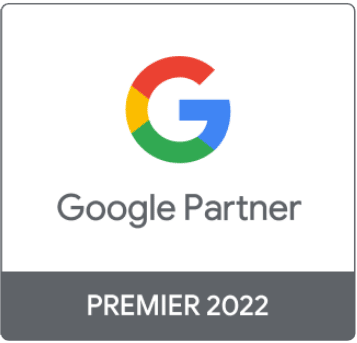Why work with us?
Bottom line: Our extensive track record speaks volumes. Nothing can truly replace the value of years of experience and proven procedures.
Unlocking Success with Google Ads: Why you should be working with iHost
Google Ads is undeniably one of the most potent marketing platforms globally, but it’s not a walk in the park to manage solo. So, the question arises: should you enlist the help of a Google Ads agency? And if so, how can you find the perfect agency for your unique business needs? This guide is your compass, brimming with crucial questions to pose to potential agencies, expected qualifications, and a curated list of top Google Ads agencies tailored to your requirements. With these insights, you’ll be on the path to maximizing your returns in no time.
Here are the eight pivotal qualities that define the best Google Ads agency:
- Qualifications
- Experience
- Tracking and Reporting
- Communication, Pricing, and Transparency
- Strategy and Setup
- Tools
- Campaign Building and Account Activity
- Brand Culture
While Google Ads offers immense potential, it demands undivided attention. Many industrious business owners invest countless hours in learning the ropes of Google Ads. However, managing and optimizing ad campaigns isn’t something you can do as a mere side project and expect resounding success. Running your own campaigns without professional assistance comes at a cost—mainly in the form of your precious time (and perhaps a bit of sanity).
We're looking forward to start a new project with you
Let's take your business to the next level!
1. Qualifications
When you’re in the market for a Google Ads agency, a logical starting point is to examine their qualifications and experience, often readily available on their website.
What to Inquire About:
Google Ads Certification
It can’t be stressed enough: your potential PPC agency must hold Google Ads certification. As Google reigns as the world’s top search engine, this certification is paramount.
Google Ads certification is bestowed upon individuals who showcase their expertise and proficiency in online advertising, particularly in Google Ads. Achieving this certification entails enrolling in Google’s online training program, formerly known as Academy for Ads, now known as Skillshop.
This comprehensive program evaluates advertisers on their mastery of both fundamental and advanced facets of Google Ads. Moreover, to attain the status of a Google Partner or Google Premier Partner, a PPC agency must have Google Ads certification.
While a Google Ads certification is undoubtedly a fundamental requirement, it’s equally essential that the agencies you evaluate exhibit an ongoing commitment to learning and improvement. The best Google Ads agencies for your business will consistently pursue additional certifications and education opportunities as part of their dedication to staying at the forefront of their field.
iHost is proud to be a certified Google Partner

2. Experience
The right Ads agency doesn’t just boast the right qualifications; they also come with an impressive track record of hands-on experience, complete with a proven process. Here are some critical questions to consider:
Can They Present Compelling Case Studies?
Case studies serve as a potent tool for agencies to demonstrate their established methods and expertise. These reports typically focus on a specific client or project, outlining the client’s goals or challenges and detailing the agency’s approach, execution, and the achieved results.
Have They Worked in Your Industry Before?
Here’s a spoiler: the answer doesn’t necessarily need to be “yes.” While prior experience within your specific industry can be beneficial, a stellar PPC agency should be capable of showcasing their competence by presenting a related industry or client that bears similarities to your campaign. This ability to draw parallels underscores their adaptability and capacity to tailor strategies to suit your unique needs
3. Tracking and Reporting
To convert website visitors into valuable customers, broaden your business’s reach, enhance visibility, and fine-tune your overall digital marketing strategy, your chosen Google Ads agency must diligently collect a wealth of data.
As a client, you should rightfully anticipate receiving regular reports from your agency. These reports should effectively present the gathered data in a manner that is both comprehensible and detailed. The reports should illuminate the agency’s activities behind the scenes, unveiling what’s proving effective, what isn’t, and why.
Google Analytics and Google Tag Manager are widely recognized as the gold standard in tracking tools (we’ll delve into these platforms shortly). It’s worth noting that many PPC agencies claim to “utilize” these tools.
However, here’s a crucial word of caution:
Incompetent agencies may mishandle tracking, rendering their efforts ineffective. Shockingly, some agencies may not even engage in tracking practices at all—yes, you read that correctly.
4. Communication, Pricing, and Transparency
Bringing a PPC agency on board isn’t just a transaction; it’s an investment in a lasting relationship. As with any relationship, effective communication and transparency are the cornerstones of success.
Even if you’ve identified an Ads agency that ticks all the boxes in terms of experience, qualifications, and robust tracking and reporting methods, a lack of communication can be a red flag. In essence, if communication isn’t strong, it may indicate that this agency isn’t the ideal match for your needs.
5. Strategy and Setup
How Do They Get to Know You? What Is Their Process?
When you decide to partner with an agency, how do they plan to gain a deep understanding of your business?
- Will they provide an extensive questionnaire?
- How many questions will they ask?
- Are these questions directly related to boosting your revenue?
- Will they carry out independent research or rely solely on your input?
An agency that doesn’t invest substantial time and effort into comprehending the intricacies of your business may struggle to develop the most robust campaign possible.
Do They “Diagnose Before They Prescribe”?
Likewise, your agency should never propose a strategy or action plan for your Ads campaign without first delving into the nitty-gritty details of your business.
Only after an extensive round of questioning, thorough independent research, and in-depth strategic planning should they be in a position to recommend a solution tailored to your PPC needs.
Furthermore, your agency should provide clear expectations for their proposed campaign strategy:
- Why it’s expected to work.
- Why it might encounter challenges.
- Potential outcomes.
- Why it’s the best choice for your unique circumstances.
Think of it this way: Just as a doctor wouldn’t prescribe medication without understanding the patient’s specific health concerns, a PPC agency shouldn’t propose an advertising solution without grasping the intricacies of your business.
Will They Review Your Existing Campaign?
And if you don’t have an existing campaign, will they conduct a comprehensive traffic study?
An agency that overlooks this valuable background information and starts from scratch might be missing out. Your existing campaign can contain valuable insights—identifying areas to avoid in the future and highlighting successful aspects that require optimization.
In a nutshell, a competent agency will inspect the foundation before considering any demolition.
Do They Maximize Google Ads Features?
While basic paid advertising through Google Ads was once the primary path to online sales, today, Google Ads encompasses far more than standard paid search. For instance, the introduction of Performance Max campaigns has transformed the landscape.
It’s imperative that your prospective Ads agency fully harnesses the array of features Google Ads has to offer.
Are They Account Managers or Strategists?
Certainly, your agency will assume the role of account managers, overseeing your account’s day-to-day operations. However, at their core, they should be strategists—meaning they consistently apply intention, research, optimization, and proactivity to your campaign.
Inquire about what distinguishes them as strategists as opposed to mere account managers.
6. Tools
When it comes to software and tools, there’s a spectrum ranging from essential to helpful, with some being entirely unnecessary (and potentially used as a pretext to charge you extra). Hence, it’s crucial to inquire:
What Tools and Software Do They Use—and Why?
But how can you ascertain if your agency is employing the right tools without squandering your resources on superfluous ones? Here’s a brief breakdown:
1. Click Fraud Software
- No need for it! Google has this covered.
If your agency claims to rely on click fraud software, it’s worthwhile to ask why they find it necessary. There’s a possibility they are using it as a pretext to inflate charges.
In reality, Google should already identify fraudulent clicks and promptly reimburse you, often faster than an external software could notify you of such occurrences.
2. Advanced Software for Competitive Analysis
- Yes, you need it! To some extent…
Here’s the deal: Competitive analysis software (such as SpyFu, iSpionage, and SEMrush) serves the purpose of comparing data with your competitors. It’s a valuable tool for understanding what’s effective or ineffective for your competitors, the budget they allocate to their campaigns, the landing pages they employ, and the keywords they target.
This software should primarily serve as an initial research tool to facilitate informed decision-making, not as a means to replicate your competitors’ strategies verbatim.
In essence, while it’s essential to establish a foundational understanding of your competition’s actions, there’s no need for your agency to invest excessive time or resources in these platforms.
7. Campaign Building and Account Activity
You don’t need to become a Google Ads expert (that’s what your agency is there for), but it’s important to have a basic understanding of what constitutes a well-structured campaign and the level of activity your agency should maintain within your account.
Guidelines for Creating Estimates and Projecting Performance in Google Ads Campaigns
Here are some valuable questions to ponder, which we delve into more comprehensively in the full version of this guide:
- What does their approach to campaign structures entail?
- Will the campaign be tailor-made to suit your specific needs?
- How engaged are they in managing your account?
- Do they conduct regular reviews of search terms (at the very least, on a monthly basis)?
- Additionally, do they consistently update your negative keyword list and refine match types?
These questions collectively serve as a yardstick to help you identify the ideal agency for your business.
8. Brand Culture
We’ve successfully navigated the realm of technical terminology, and now it’s time to delve into the realm of relationships.
While it may seem trivial, it’s essential to genuinely like the individuals you’ll be working with on your PPC campaign. This extends beyond their work style to encompass the overall culture of their business.
As you engage with potential PPC agencies, ponder these inquiries:
- What are your expectations for the business relationship?
- What type of individuals or teams do you find most suitable for collaboration?
- What attributes do you prize in an employee?
Remember these personal considerations—they can play a pivotal role in determining if you truly connect with the Google Ads agency you ultimately choose to bring into your fold.
